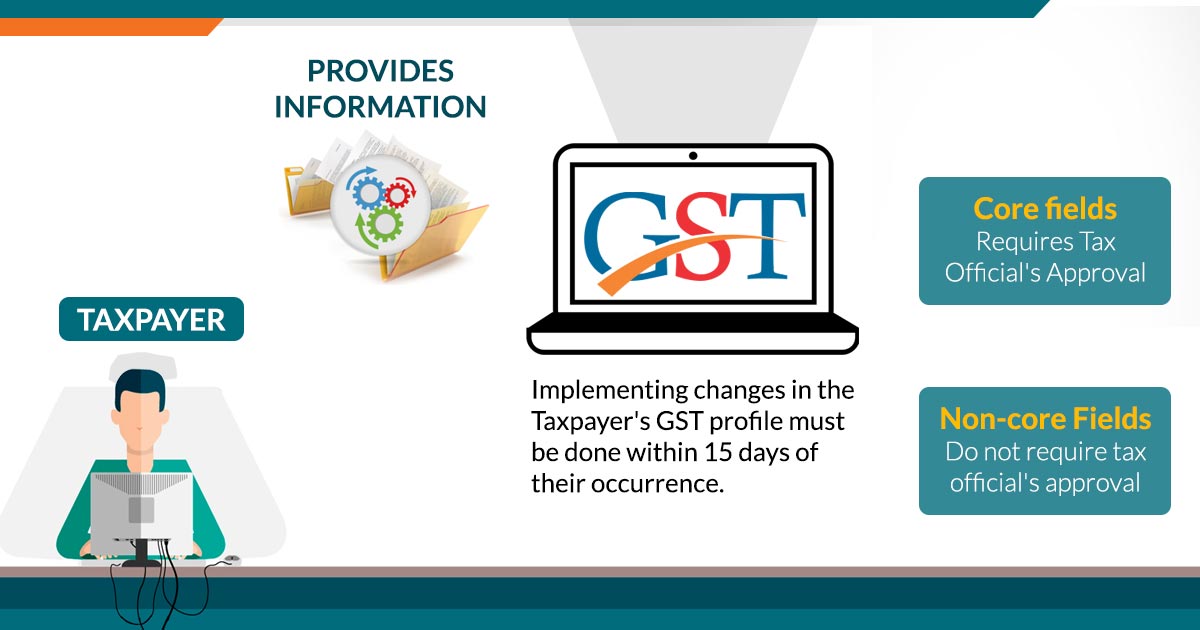Why Services Like the most effective GST Registration Services in Singapore
Why Services Like the most effective GST Registration Services in Singapore
Blog Article
Throughout: The Ultimate Roadmap to GST Registration for Companies Looking For Financial Stability
Browsing the complexities of Product and Solutions Tax (GST) registration is a vital action for companies making every effort for monetary stability. From recognizing the essential concepts of GST to adhering to post-registration standards, the process can seem intimidating initially glimpse. Damaging down the roadmap right into manageable actions can enhance the enrollment trip for companies looking to boost their financial standing. Let's discover the important elements that compose this ultimate roadmap and find just how each stage adds to laying a solid structure for economic success.
Understanding GST Basics
Looking into the fundamental concepts of Goods and Services Tax (GST) is crucial for obtaining a comprehensive understanding of its effects on businesses and the economy. GST is a value-added tax imposed on the majority of items and services for residential consumption. It has actually changed numerous indirect tax obligations that existed in the pre-GST era, simplifying the tax obligation framework and boosting ease of doing service in India. Under the GST system, both services and items are exhausted at a certain rate, which is established based on their classification. If their annual turn over surpasses the threshold limit set by the government, businesses are called for to register for GST. Input Tax Credit Report (ITC) is a considerable feature of GST, permitting services to declare credit score for taxes paid on inputs, reducing the overall tax obligation problem. Recognizing the fundamentals of GST is important for organizations to adhere to tax policies, handle their financial resources efficiently, and add to the nation's economic development by joining a clear tax obligation system.
Qualification Criteria for Enrollment
To sign up for GST, companies should meet particular qualification requirements established by the government. The main qualification need is that any organization associated with the supply of products or solutions with an annual accumulation turnover above the threshold limitation established by the authorities have to register for GST. Since the current policies, the threshold restriction for GST enrollment is an annual aggregate turnover of 40 lakhs for companies operating within a state, besides unique category states where the limitation is 20 lakhs. Additionally, specific companies are needed to sign up for GST regardless of their turn over, such as interstate suppliers, casual taxed individuals, and businesses accountable to pay tax under the reverse cost mechanism. It is critical for services to thoroughly assess their turn over and deal types to determine their GST registration commitments properly. Failing to sign up for GST when eligible can lead to penalties and legal effects, making it necessary for businesses to stick to the specified qualification requirements.
Documents Required for Enrollment
Having fulfilled the qualification standards for GST enrollment, companies should currently guarantee they have the requisite records in place to continue with the enrollment process successfully. The records needed for GST enrollment typically consist of proof of organization constitution, such as collaboration act, enrollment certificate, or unification certificate for different sorts of organizations. Furthermore, organizations require to supply records establishing the major workplace, such as a rental agreement or electrical energy bill. PAN card visit this web-site of the company, along with the identity and address evidence of promoters/partners/directors, are necessary for confirmation objectives. Checking account statements, along with canceled cheques or a copy of the bank passbook, are required to validate the financial information given during enrollment. Moreover, businesses should have electronic trademarks prepared for the authorized signature. Ensuring all these records are organized and readily offered will expedite the GST enrollment process, allowing services to comply with tax obligation guidelines perfectly.
Step-by-Step Enrollment Refine
Beginning the GST enrollment process entails a series of structured steps to make sure a certified and seamless registration for services. The very first step is to see the GST site and complete the enrollment form with exact details of business entity. Following this, the applicant gets a Short-term Referral Number (TRN) which is made use of to return to the application procedure if it's not completed in one go.
Next, all required records according to the list provided by the GST portal need to be submitted. These records generally consist of proof of company address, registration and identification proofs of marketers, financial statements, and business entity's PAN card.

Post-Registration Conformity Standards

Conclusion
To conclude, organizations seeking economic security needs to comprehend the fundamentals of GST, satisfy eligibility requirements, gather necessary papers, follow the step-by-step enrollment procedure, and abide by post-registration guidelines - Best GST registration services in Singapore. By sticking to these actions, services can make sure compliance with tax guidelines and keep financial security in the future
Additionally, particular businesses are called for to register for GST Learn More regardless of their turnover, such as interstate suppliers, casual taxed individuals, and organizations liable to pay tax obligation under the reverse cost mechanism.Having actually fulfilled the qualification standards for GST registration, services have to currently ensure they have the requisite Bonuses documents in area to proceed with the registration process successfully. The files required for GST registration commonly consist of proof of company constitution, such as collaboration deed, enrollment certification, or consolidation certificate for various kinds of services. In addition, companies require to provide records establishing the major area of company, such as a rental agreement or electrical power bill.Starting the GST registration process entails a series of structured actions to ensure a seamless and certified registration for businesses.
Report this page